In precision manufacturing, success in sheet metal bend work is not a matter of luck; it is the quality choice of your suppliers. Your supplier not only directly affects your cost per piece but also extends your product quality, manufacture efficiency, and brand reputation. A good sheet metal bending plant, with its vast technical expertise, advanced machinery, and computerized quality inspection systems, can achieve an exact design drawing on a flawless, guaranteed product that signifies on time project completion under budget. On the other hand, an ineligible supplier may be so poor a link in the chain who may create a chain reaction of unwinding risks and make an otherwise flawless design null. Hence, considering supplier selection as a strategic decision instead of procurement function and becoming well versed with their strengths and weaknesses would become essential in covering up risks and obtaining a successful project. This guide will automatically review five major criteria for selection and areas of risk and assist you in making informed decisions. As a time-saving approach, this is a summary in one. glance of the results.
Quick Reference: Choose Your Tap at a Glance
| Screening Dimensions | Key Considerations |
| Quality | Certification system (e.g., ISO 9001), inspection process (initial inspection, in-process inspection), quality documentation |
| Equipment | Equipment advancement, accuracy range, and ability to handle your materials and complex processes |
| Quotation | Quotation details (material/processing/tooling fee breakdown), no hidden costs, MOQ requirements |
| Service | Timely responsiveness, smooth communication, project milestone control, and delivery reliability |
| References | Previous similar projects, customer reviews and reputation, and a proven track record of success |
The best option is a trade-off among these five areas, not one that is superior. Do not compromise quality and service for cheap prices. An overall evaluation should be undertaken of the technical competency of the company and the sustainability of the long-term alliance.
Why Trust This Guide? Practical Experience from LS Experts
At LS, we possess experienced personnel who have been working for decades of experience in the sheet metal fabrication sector. We have learned the hard way that the difference between an idealized paper design and a part that can be mass-produced reliably in the shop is a canyon by the name of "manufacturing feasibility." Every specification in this handbook is not a theoretical computation, but "rules for survival" fought out through thousands of orders, incalculable tries, errors, and optimisations. We realize that without the optimum in quality, equipment, and communication, one mistake will ruin a customer's project. So we wanted to put our principles that we live by on a day-to-day basis out there in order to be accountable for high standards and choose partners.
Supplying customers from various industries, LS not only solved the issue of new energy battery pack casing high-strength bending stability, mass production efficiency and accuracy of industrial automation equipment racks problem, and communications equipment casings complex internal structure issue. These uses in the industry enable us to understand completely the complex requirements of various clients for precision, durability, appearance, and efficiency, and provide solutions through experience in these industries. All of the advice in this handbook is founded on practical experience in one or more areas and example.
Why Is Choosing A Good Sheet Metal Bending Manufacturer So Crucial?
Sheet metal bending is at the heart of manufacturing, being applied in industries ranging from electronics and communications to auto manufacturing and medical equipment. The accuracy of bending a part determines the final product's precision, durability, and look. A single error at this very important step, however, may have a widening and devastating domino effect. An inexperienced or unskilled maker would be the weakest link in your chain of projects within no time.
- Apart from common quality issues like dimensional variation, misalignment, or scratches on surfaces, you would also face problems with follow-up assembly and even scrapping of entire batches.
- Apart from that, there are hidden costs (such as rework, delays, and extra shipping) that might silently drain your funds. Insecure delivery management will turn your entire production timeline upside down, extending your product launch time line, and involving huge business losses. This eventually results not only in the part failure but in the loss of credibility of your product and brand reputation too.
The selection of appropriate sheet metal bending production company is not only essential for individual part quality but also essential for the ultimate success of your project. Smart decisions can save firms capital, enhance efficiency and boost the competitiveness of a product.
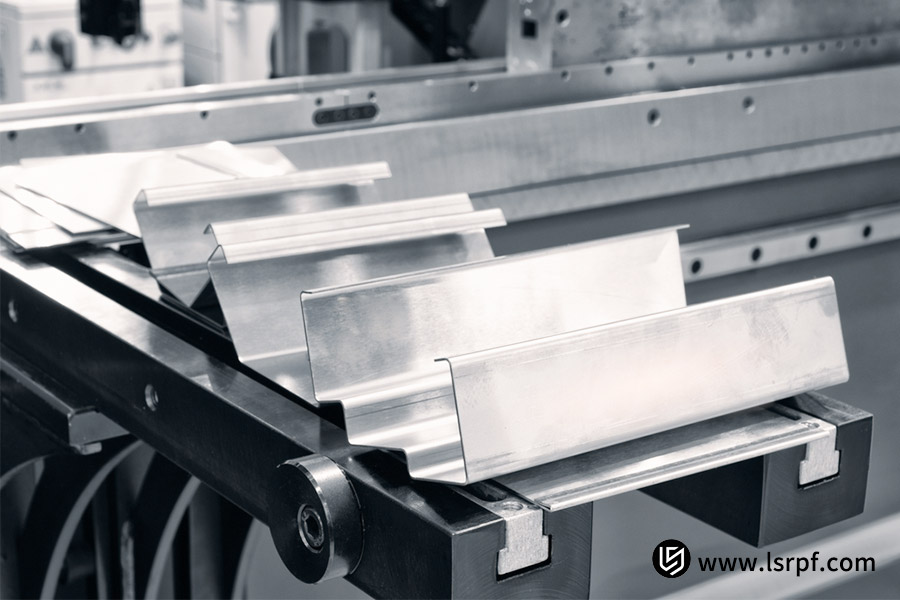
Criteria 1: How To Evaluate A Manufacturer's Quality Control And Certification System?
When assessing a sheet metal bending producer, its quality control system matters most. A well-developed quality management system like ISO 9001 certification gives direct proof of its intention of process standardization and continuous improvement. It means that the producer doesn't solely depend on experience but rather defines standardized management from the order review stage through to shipment of products. This system avoids and corrects faults and guarantees consistent quality products and traceability.
That is only a beginning; actual quality lies at the quality control phase at the operational level. You may wish to ask yourself whether or not the maker has an inclusive and strenuous quality control regimen:
- Incoming Material Quality Control (IQC): Verifies that the raw material material, thickness, and finish are correct (e.g., sheet metal).
- First Article Inspection (FAI): Prior to starting mass production, the very first article is thoroughly inspected so that it conforms to the original draught.
- In-Process Quality Control (IPQC): The operators also routinely perform self-and mutual checks by way of calipers, angle rulers, and go/no-go gauges during bending for early detection of deviations.
- Final Quality Control (FQC): This constitutes thorough checking of finished products in factories. Qualified quality inspectors would normally use measuring instruments like coordinate measuring machines (CMMs) for verification of critical dimensions and prepare an inspection report.
In short, a credible manufacturer's quality competency is more than a certificate; it is a stable base ingrained into each production procedure, supported by specialized machines and a fastidious attitude.
Criteria 2: Can The Manufacturer's Equipment And Technical Capabilities Meet Your Complex Needs?
The equipment and technical capacity of a manufacturer are a direct indication of their strength and a direct factor in determining their capacity to give shape to your design. The superior level of basic equipment, like high-precision CNC press brakes, fiber laser cutting machines, and CNC punching machines, lies at the root of maintaining processing accuracy, efficiency, and consistency. A new-age CNC press brake not only assures repeatable positioning accuracy of ±0.1mm or even more, but its advanced CNC system also optimizes springback and maintains accuracy in intricate, multi-angle bends.
When evaluating a press brake, you should focus on several key indicators:
- Bend accuracy and maximum processing dimensions determine whether the manufacturer can handle the size and complexity of your product.
- The breadth of their tool library. A manufacturer with a wide selection of standard tools and custom capabilities can more flexibly accommodate special shapes (such as goosenecks and flattened steps), saving you tooling costs.
- Consider their experience with specialized materials (such as stainless steel, aluminum alloy, and high-strength steel). Different materials have distinct bending characteristics, requiring distinct tools, and requiring specific parameter settings. Inexperience can easily lead to cracking or deformation in the workpiece.
Superior equipment is a condition for superior production, and complete technical and process knowledge allows challenges of practice to be resolved and design for manufacturability (DFM) to be accomplished. The two together insures that your complex needs are best served.
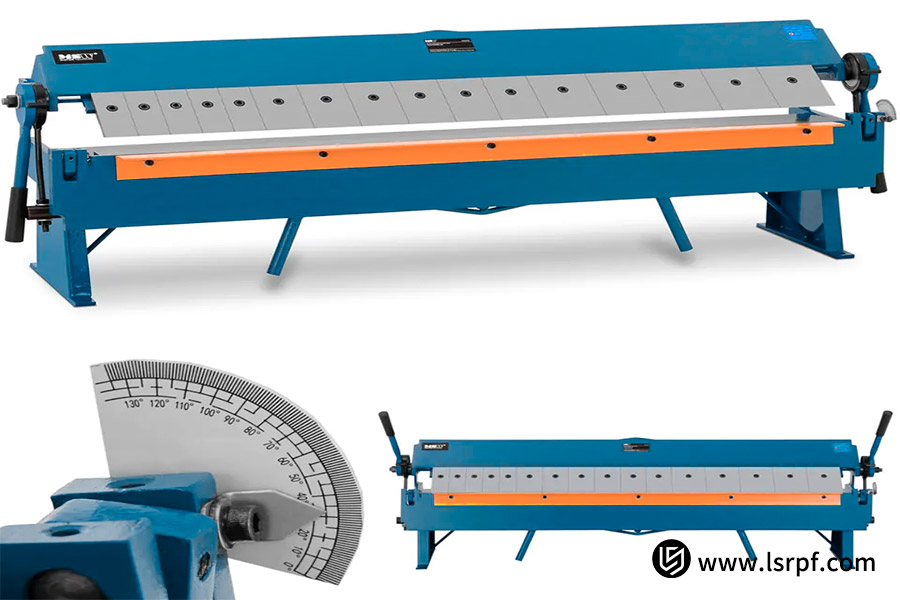
Criteria 3: Is The Sheet Metal Bending Quote You Received Transparent And Free Of Hidden Costs?
A clear and thorough quote is among the best proof of a manufacturer's level of professionalism and integrity. The ultimate cost of sheet metal bending virtually always involves a series of costs, such as: material costs (type and specification of sheet metal and loss), charges for processing (programing, laser cutting, and time for bending), charges for tooling ( depreciation or customization of dedicated tooling), charges for surface treatment (outsourcing for electroplating, painting, and anodizing), and a required management fee and profit. Professional manufacturers do not hesitate to lay out each one of these charges for you, that way, you know exactly where the money goes.
Watch out for quotes that are too generic or significantly lower than the industry average since this is a "low-price trap." Such quotes might intentionally avoid needed steps, tooling expenses, or not factor in theadditional expense of minimal-volume requests (e.g., set-up fees). Once committed to an order, those "hidden" expenses will appear under the guise of "modifications fees," "expediting fees," or "special processing fees," and the ultimate cost will significantly surpass expectations, leaving one at a loss.
A quality quote is greater than a price list; it conveys a real intention for cooperation. It ought to be clear and well-structured, not ambiguous, and should clearly delineate the minimum order quantity (MOQ), method of payment, validity period, and possible cost fluctuations. Reading and interpreting the quote content is extremely necessary.
Criteria 4: From Communication To Delivery, Is The Manufacturer's Service Process Professional And Efficient?
First-class manufacturing expertise require an efficient service process in order for a smooth and reliable customer experience. This process begins through efficient communication of requirements. An efficient manufacturer should accurately understand your technical requirements and commercial specifications and a personal account manager or engineering team should provide timely and accurate responses.
The typical excellent online service process should encompass a few major elements:
- Immediate review of drawings and prompt quote issuance displays the technical competency and speed of the team.
- Clear production update transparencies enable you to track order status and efficiently control your production schedules.
- Guaranteed delivery commitments also indicate the manufacturer's accurate command of its production capacity and project management.
- Thorough after-sales service (e.g., fast resolution and quality problem feedback) also plays a vital role.
Effective, open procedures and sure delivery are essential measures of a manufacturer's service capacity. They maintain control from the inception of a project through delivery, lower communication and management costs considerably, and form the basis for long-term smooth collaboration.
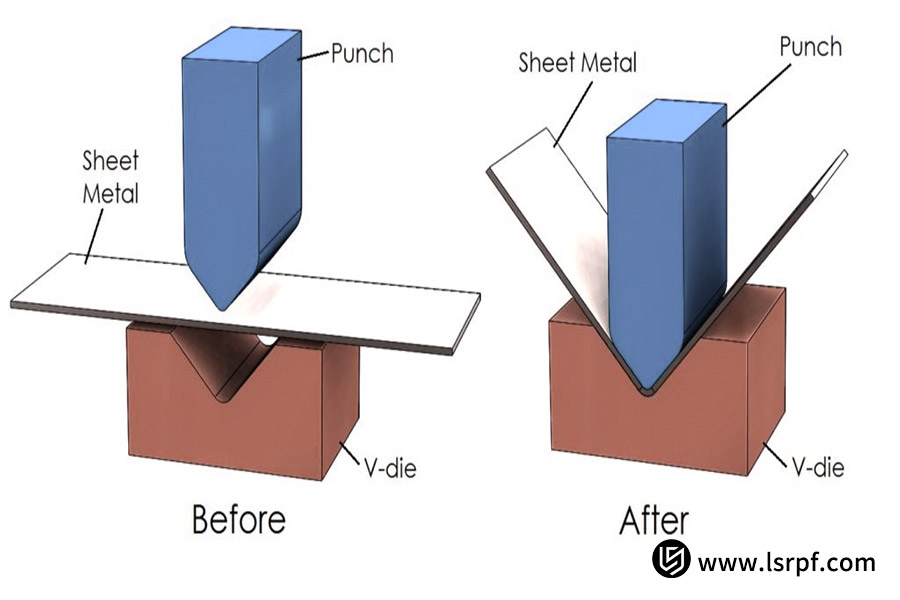
Criteria 5: How To Assess A Manufacturer's True Capabilities Through Case Studies And Reputation?
The best method for qualifying a manufacturer's actual capabilities is by looking at their history of success and reputation in the marketplace. In the beginning, request willingly industry case histories that they've worked for, particularly those involving material and process complexity comparable to your own. Top-tier companies are normally more than willing to highlight their process and success at overcoming certain technical problems, like machining high-precision medical device enclosures or special alloys.
Second, thoroughly peruse their customer testimonials and reviews. This real, third-party feedback is reliably more credible than a billboard from the company itself. You can request a supplier for some of their customers' contact information for verification, or look into their reputation and service quality through industry forums and B2B websites. If circumstances allow, a site visit gives the best direct evaluation of their production premises, condition of equipment, and level of management; seeing it for yourself says a lot.
Actions speak louder than words. By evaluating a manufacturer's record and reputation in the market carefully, you'll be able to peer through superficial advertisement and more thoroughly and objectively evaluate their technical competency, project execution capacity, and partner credibility, for a solid ground for final selection. This is an important step for eliminating partnership risks and securing project success.
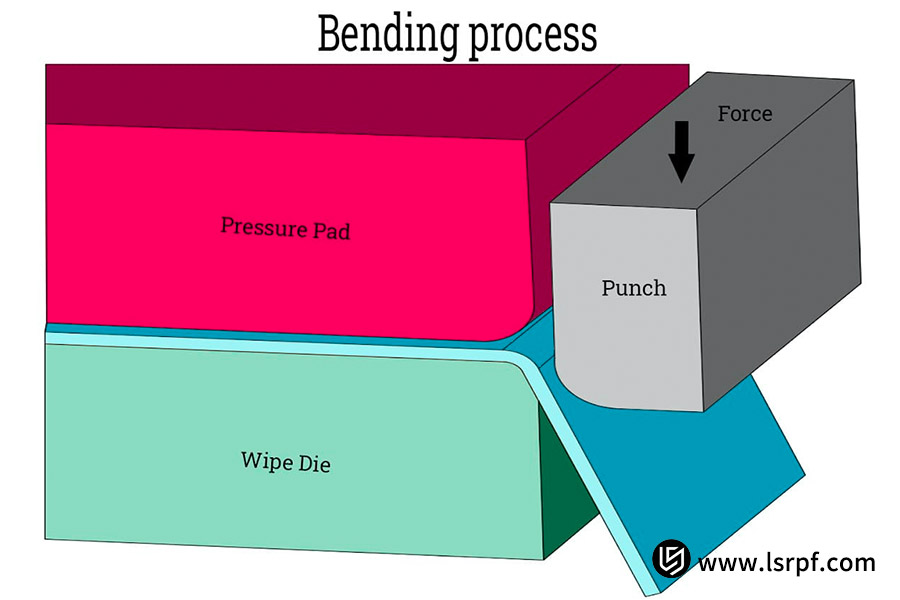
Case Study: How Did LS Solve The Client's High-Precision Medical Device Housing Bending Challenge?
1. Client background and challenges:
One startup specialized in new medical device design built a new in vitro diagnostic device. Its main component, the stainless steel housing, was complicated in structure with numerous mounting interfaces and holes for heat dissipation and needed ultra-high bending precision (tolerances of ±0.05mm or less). In addition, since the exposed product was facing the direct medical environment, the housing surface should be absolutely scratch- and dent-free. The current manufacturer of the customer, constrained by the precision of available equipment and by process limits, had a yield of about 60%, drastically affecting time to market and cost control for the end product.
2. Limitations of traditional solutions:
Conventional press brakes and high-carbon steel tooling struggled to attain these medical-grade precision and surface finishes. During the bend forming process, not only are dimensional inaccuracies oftentimes caused by a failure of equipment repeatability, but hard conventional tooling also tends to easily impart irreparable indentations and scratches into the brushed finish of the stainless steel, a significant factor for the previously low yield rate.
3. LS's innovative solution:
Faced by this issue, the LS technical team provided a systematic response:
- For molds and equipment, an imported high-precision linear scale and micro-hydraulic protection system-equipped CNC bending center was selected for precise bending movement. A custom polymer polishing mold was specifically made for this production. The properties of its material offer efficient bending force and precisely protect the workpiece face from damage.
- From the process perspective, careful simulation analysis employing specialized bending programming systems streamlined the bending sequence and tooling and efficiently sidestepped structural interference while achieving stable forming.
- For quality control, a very rigorous First Article Inspection (FAI) process was adopted, and main dimensions for every lot thoroughly inspected by a coordinate measuring machine (CMM) for a 100% compliance with the stringent requirements of medical customers.
4. Achievements and value:
With LS's one-stop total technical solutions, this medical housing project's mass production yield rate was improved significantly from a mere 60% to a peak of 99.8%. LS not only consistently achieved timely delivery of every batch, but its excellent performance also reduced total manufacturing costs and quality risks for the customer significantly, eventually enabling their new medical device's successful validation and release into the market. This case demonstrates LS's advanced technical know-how and project execution at surmounting highly complicated sheet metal challenges involving distinctive precision and high-quality surfaces.
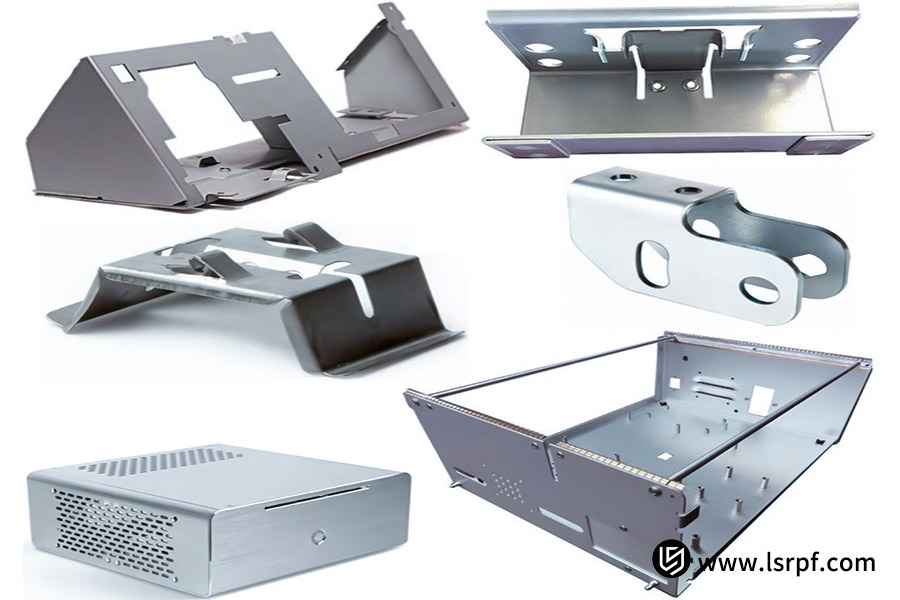
Common Pitfalls: What Pitfalls Should You Avoid When Choosing A Sheet Metal Bending Service Provider?
When it comes to choosing a sheet metal bending company, buyers and designers often fall into common traps that translate into higher prices, longer lead times, and even in some instances, quality failures. Below are some pitfalls to avoid and some hints at how to avoid them:
Trap 1: Pursuing the Lowest Price
Most customers fall prey to "low bid winner" by overlooking actual cost structure in the bid price. Some suppliers offer lower prices by reducing material (e.g., lower quality sheet metal), omitting required operations (e.g., no thorough inspection), or concealing future costs (e.g., tooling costs or change order costs). This leads to more cost in later stages or lower quality.
Trap Avoidance Tips: Require that suppliers quote in clear and itemized bids. Compare based on quality, service, and price, not lowest price.
Trap 2: Neglecting Communication and Service Processes
If a supplier is slow in getting back, communication is inadequate, or they cannot give a clear project timeline, this is frequently an indication of weak management. Poor communication makes your coordination unnecessarily high and makes it hard for problems to be resolved fast.
Trap Avoidance Tips: Test a supplier's communication efficiency before you choose one, ask if they have a special project manager for one's order, if there is a standardized project management system in use, and specify the method and how often a delivery update would be sent.
Trap 3: Overpromising
Certain suppliers, while looking for order coverage, will wholesale promise "no problem" or "can do it all," yet don't have the appropriate technical evaluation or equipment capacity through which to support them, and thus fail.
Trap Avoidance Tips: Request a specific process plan (DFM analysis) based on your drawings to verify the reliability of their promises with technical details.
Trap 4: Not Conducting an On-Site Inspection or Verifying Equipment Condition
It is unsafe for a company to assess a prospective supplier based solely upon advertising brochures. Aging or obsolete equipment cannot offer stability and reliability, and photos are misleading.
Trap Avoidance Tips: Wherever feasible, conduct site visits, with a focus on the brand of machine, age, maintenance history, and richness of mold library.
Trap 5: Not Signing a Detailed Contract with Clear Responsibilities
Dependence solely on verbal comprehension or mere ordering will provide no useful redress or process for making claims in case of quality problems, delivery delays, or intellectual property matters.
Trap Avoidance Tips: Have a written contract executed with the following detailed specifications--technical standards specifications, acceptance procedures, delivery obligation, date for payment, liability for breach of contract and intellectual properties ownership.
While the antidote to succumbing to such pitfalls is embracing a "comprehensive evaluation and prudent decision-making" approach, a good partner is more than a processor - it is a trusted partner that brings technical knowledge and reduces project risk.
FAQs
1. What information do I need to obtain a sheet metal bending quote?
To quote exactly and effectively, in addition to quoting accurate engineering drawings specifying material, thickness, bend angle, and tolerance, detail in terms of batch quantity, surface finish (e.g., spraying, electroplating, anodizing), and special packaging or despatching should also be specified. Special construction conditions (e.g., press riveting or welding) should also be specified well ahead of time. This will allow the supplier to fully consider the process cost and complexity and avoid incremental cost or delay in delivery afterwards because of lack of detail.
2. Can you accept small-volume custom sheet metal bending orders?
Yes. The major professional makers, e.g., LS, also provide variable order models for R&D prototype and small-lot production purposes. They normally have quick quote turnaround and special production schedules for their small-size orders, maintaining quality and keeping a low price. Besides, the orders provide an opportunity for testing the technical capability and after-sales service of the supplier and laying a future foundation for cooperation in large sizes.
3. What are the common materials used for sheet metal bending?
The most common sheet metals used for bending are cold-rolled steel (SPCC, having a low cost and ease of shaping), stainless steel (for corrosion resistance, e.g., 304, and for acid and alkali resistance, e.g., 316), aluminum alloys (e.g., 5052 and 6061 for lightweight and average strength), and brass (e.g., for higher electrical and aesthetic properties). They have varying process parameters when bending. Stainless steel, for example, is more difficult and has more springback, while aluminum alloys require careful guarding of the face. Even material selection plays a big role for final product performance as well as cost control.
4. What is the typical bending accuracy?
By employing advanced CNC press brakes, accurate tooling, and process control, bending angle accuracy can be regulated in general to ±0.5° or even less, and the placement accuracy of dimension can be maintained consistent at ±0.1mm. This depends on the repeatability of equipment, system springback compensation capability, and the quality of the operator. For the situation where there are high assembly components, suppliers should be made aware of critical dimensions and testing processes of quality for products.
Summary
A competent sheet metal bending fabricator choice is a tactical one that must be given first priority to quality, equipment, price, service, and case histories. These five basic criteria and best practices for avoiding pitfalls enumerated in this article are a guide to helping you systematically determine a supplier's overall ability, reduce risk in the partnership, and accomplish high quality, timely, and within-budget project completion. Sheet metal fabrication is more than a process technology; it's a key ingredient for a successful final product and marketplace competitive edge.
We believe that a good manufacturing partner should be a reliable extension of your supply chain. LS, with sophisticated equipment and technology, strict quality system, open quote process, and documented case histories across different industries, focuses on providing customers with reliable sheet metal bending solutions. If you require precision manufacturing or wish to streamline your own supply chain, get in touch with our expert staff to receive a custom quote and technical advisory. Let us give power to your products through our expertise and partner for success.
Upload your design drawings now and get an instant bending quote (bending price), let LS be your strong backing in pursuit of ultimate bending precision!
📞Tel: +86 185 6675 9667
📧Email: info@longshengmfg.com
🌐Website:https://lsrpf.com/
Disclaimer
The contents of this page are for informational purposes only.LS seriesThere are no representations or warranties, express or implied, as to the accuracy, completeness or validity of the information. It should not be inferred that a third-party supplier or manufacturer will provide performance parameters, geometric tolerances, specific design characteristics, material quality and type or workmanship through the LS network. It's the buyer's responsibilityRequire parts quotationIdentify specific requirements for these sections.Please contact us for more information.
LS Team
LS is an industry-leading companyFocus on custom manufacturing solutions. We have over 20 years of experience with over 5,000 customers, and we focus on high precisionCNC machining,Sheet metal manufacturing,3D printing,Injection molding,Metal stamping,and other one-stop manufacturing services.
Our factory is equipped with over 100 state-of-the-art 5-axis machining centers, ISO 9001:2015 certified. We provide fast, efficient and high-quality manufacturing solutions to customers in more than 150 countries around the world. Whether it is small volume production or large-scale customization, we can meet your needs with the fastest delivery within 24 hours. chooseLS technologyThis means selection efficiency, quality and professionalism.
To learn more, visit our website:www.lsrpf.com





